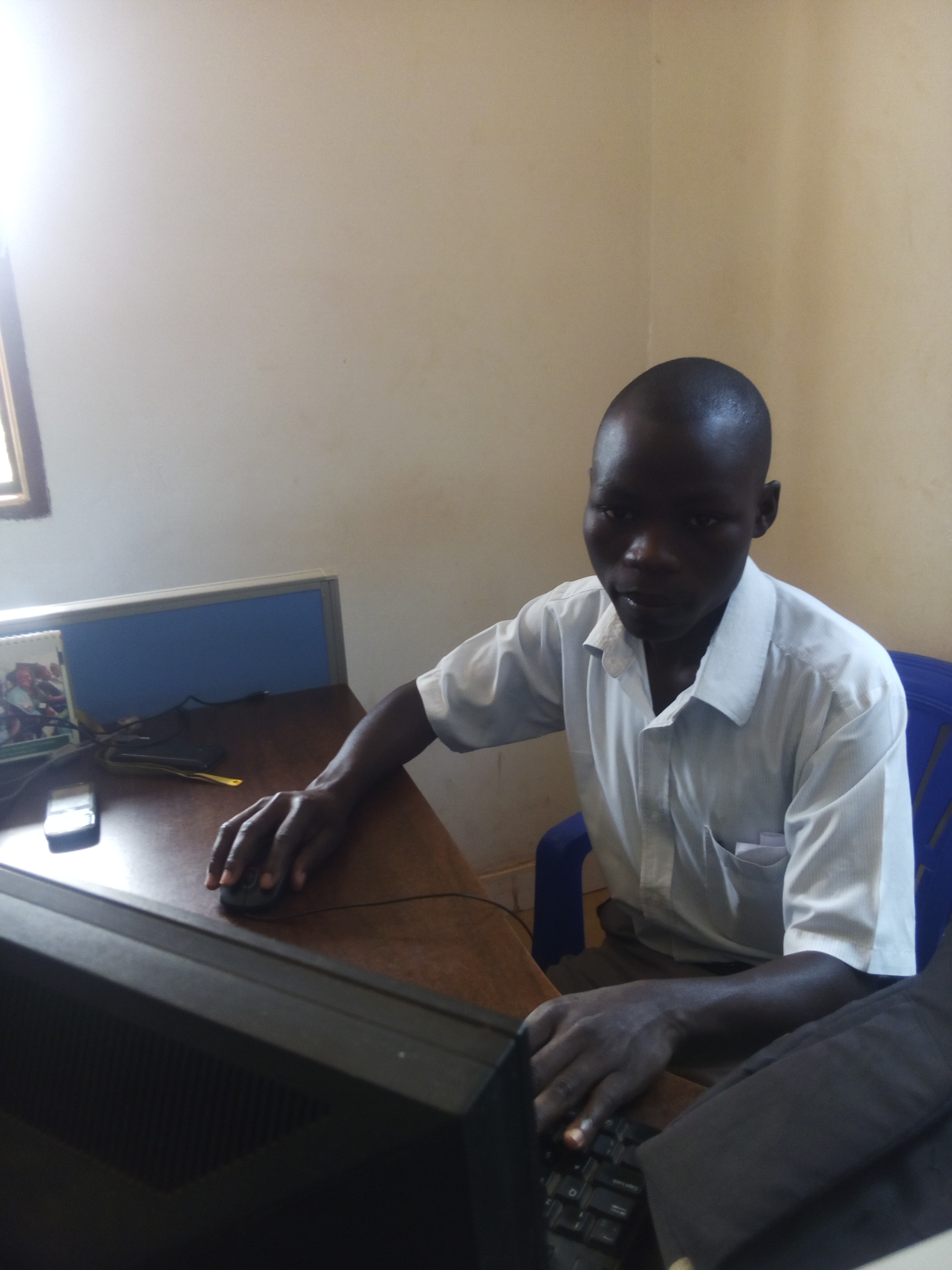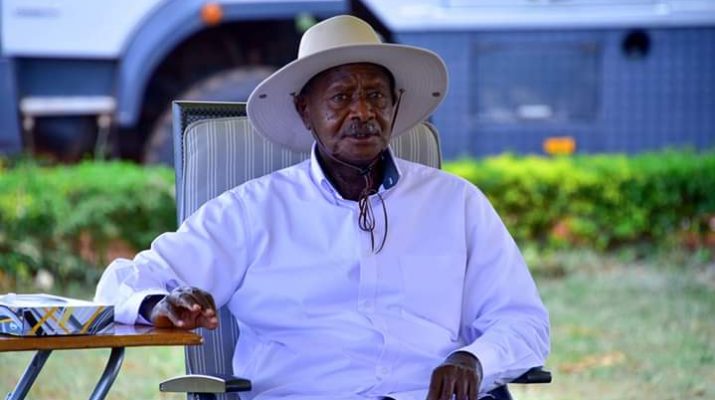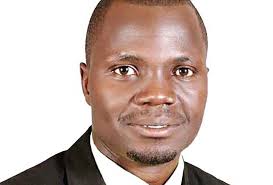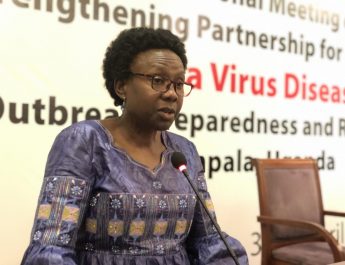KAMPALA – President Museveni on Tuesday, 18 August 2020 presided over the 3rd NRM National Delegates Conference. Delegates attended the meeting virtually from various district across the country.
In his address the President tackled a number of issues including, the fight against COVID-19, the economy, and social issues such as land evictions.
Below is the address
1 National Resistance Movement Office of the National Chairperson Plot 10 Kyadondo Road Box 7778 Kampala Tel: 346295 – 346279
MEMBERS OF CEC,
MEMBERS OF NEC,
MEMBERS OF THE NATIONAL CONFERENCE
ALL THE NRM MEMBERS
AND ALL THE UGANDANS
Greetings from the CEC Members, from the Cabinet and from the Members of the NRM Parliamentary Caucus. Sympathies go to all Ugandans regarding the hardships and inconveniences that have been caused by the lockdown on account of the need to protect our people from the danger of Covid-19. I, myself, am like a prisoner here in Nakasero and Entebbe, since March. I have only managed to sneak out to Karamoja to see the Marbles factory; to Mbale for the Industrial Park; to Jinja, twice, for the rising waters and for the Nytil factory; to Namanve for the factories; to Kasese for the land-slides; to Nakasongola for the fire-fighting vehicles and, recently, to Lubigi and Kasubi for the anti-flooding channel and for the Kasubi market. However, everybody should know that we have no alternative. We should not be so short-sighted as to think of only business and jobs and forgetting life. It is not correct or necessary to lose lives on such a big scale as has happened in some countries. 2 Since so many people have survived this disease, here in Uganda, 1,165 have survived the virus out of the 1,560 that were infected, it gives me a clear hope of a vaccine. Yet, we have seen massive deaths in some countries in the World when people do not take firm measures. Here in Uganda, we have by today, lost a total of 15 people. Many of these deaths could have been avoided if they had got to approved Government treatment centers dedicated for this purpose. The correct procedure is that when you feel sick with flu-like symptoms, stay at your home and ring the nearest Government health center. They will alert the nearest Covid-19 monitoring center who will, then, come to the home of the person, take samples and in 24-48 hours, the results will be back. If the person is found without Covid-19, then that person will be taken to the nearest normal health center. If found with Covid-19, the person will be taken to the Covid-19 treatment centers in the following places: (i) Mulago National Referral Hospital; (ii) Entebbe Grade B Hospital; (iii) China- Uganda Friendship Hospital, Naguru; (iv) Jinja Regional Referral Hospital; (v) Mbale Regional Referral Hospital; (vi) Masaka Regional Referral Hospital; (vii) Gulu Regional Referral Hospital; 3 (viii) Lira Regional Referral Hospital; (ix) Mbarara Regional Referral Hospital; (x) Hoima Regional Referral Hospital; (xi) Mubende Regional Referral Hospital; (xii) Fort Portal Regional Referral Hospital; (xiii) Adjumani Hospital; (xiv) Soroti Regional Referral Hospital; (xv) Kabale Regional Referral Hospital; (xvi) Moroto Regional Referral Hospital; (xvii) Bombo Military Hospital; (xviii) and Arua Regional Referral Hospital. Almost all the Covid-19 infected persons that have got to the Government treatment centers in time, have healed. In the meantime, remember that Covid19 is completely avoidable by doing the following: (a) Always keeping two (2) metres from one another while in public; (b) Always wearing a mask in public; (c) Do not go to the public if you have cold (flu) like symptoms nor should anybody be near you, stay isolated at home. Do not interact with family members. Call Ministry of Health help-line 0800- 100-066, for assistance. (d) Never touch your mouth, your nose or your eyes with unwashed hands; 4 (e) Always wash your hands with soap and water or use sanitizers to disinfect your hands; (f) and Always sanitize the surfaces that are used by many people (door-handles, table-tops, chair arm-rests, etc). All this is quite tiresome and inconvenient. Putting on masks is quite tiresome. However, our Baganda people say: “Asiika obulamu, tassa mukono”. Here, the rich African languages use the imagery of frying food, saying that when you are “frying life (to keep it), you never relax your arm, unlike when you are frying the real food when you can relax (kuhuumuza) your arm”. Their Banyankore brothers say: “Amagara, gakira amagana” ? “life is more important than wealth”. These comments about Covid-19 form part of the 46 pages Statement that I have distributed to all the Members of CEC, NEC and the National Conference. The rest of the Statement covers a summarized version of what will be in our Manifesto. First of all, the Statement notes, with satisfaction, that Uganda, since 1986, has not only achieved the minimum economic recovery but has also expanded 23 times in size from US$1.55billion to US$37.3billion in the last 34 years. With the PPP method, the GDP is US$106billion. We are approaching our target of Middle Income status. 5 If it had not been for the corona virus that disturbed the last quarter of the last financial year, we would have been even nearer. I congratulate our brother people of Tanzania, President Magufuli and his successors for achieving the Middle Income status. As a consequence, the problem of the acute shortages of salt, sugar, soap, etc., of 1986, have been replaced with the problem of surpluses of sugar-cane and sugar, milk and milk products, maize, bananas, cassava, a host of industrial products, etc. The two documents ? my Statement and the Manifesto later ? show how the NRM will handle this happy new “problem”; in reality, not a problem but an opportunity. The NRM will (indeed, we have already started) expand and deepen industrialization by producing the full range of primary and secondary industrial products that are economically viable, such as starch, cooking gas and industrial alcohol out of maize or industrial sugar out of chai sugar. Industrial sugar is used for cococola while the chai sugar cannot be used for that purpose. You further refine the chai sugar in order to get the coca-cola sugar (industrial sugar). We are now crying about too much chai sugar when we are spending US$40million to import coca-cola sugar. This is being cured by Mayuge sugar importing machinery to produce industrial sugar. 6 In order to access markets i.e. African and globally, our industrial products (primary and secondary) must be competitive in price, quality and safety. It is not reasonable or realistic for Ugandans to think that anybody in Africa or elsewhere will buy sugar that is more expensive than the sugar they can buy from somewhere else. The NRM Government will help the producers by bringing down the cost of electricity, transport and the cost of money for borrowing for industries and for agriculture. The details are in the Statement. The other target in the Statement is the struggle against the phenomenon of okukolera ekidda kyoonka, tic me ic keken, that was still imprisoning 68% of the homesteads according to the 2014 census. With efforts we have vigorously pushed, I am beginning to hear of improvements in the districts as follows: Mityana-60%, Kiruhuura-40%, Ntoroko58.5%, Mukono-60%, Jinja-42%, Kalangala-26%, etc. By dealing with the problem of okulolera ekidda kyoonka, we shall solve two problems at a go: the problem of money-lessness (obwooro bwa sente) in the homesteads and the purchasing power of the population. The Ugandans are still under-consuming because of lack of money. Lack of money because they are not engaged in money making activities or if they are, they are doing so without ekibaro (cura, studying the economics of the activity). When all the homesteads get involved in okukolera sente (tic me 7 sente ? working for money), with ekibaro, the purchasing power will go up. Instead of buying only 62 litres of milk per annum per person, Ugandans will drink the WHO recommended amount of 210 litres per capita (per person) per annum. With textiles, Ugandans are consuming 2 metres per person per annum instead of 7 metres per person per annum that is regarded as adequate, where children do not have to share blankets or sleep on beds without bed-sheets. Therefore, part of the lack of katale (market) is caused by the low purchasing power of Ugandans which, itself, comes out of not working for money in the 4 sectors of commercial agriculture, industry, services and ICT and doing so with ekibaro. The documents also bring out the fact that given the huge achievements we have gained in health and education, we are now beginning to harvest from the knowledge–based economy. This is where our scientists, use their knowledge to make products: vehicles, agro-products, medicines, vaccines, computer solutions. We are stopping, for instance, the importation of ready-made buses and we nolonger accept the concept of assembling buses and other vehicles here. Our scientists and some of the investors have capacity to fabricate these products locally. In the same way, they have capacity to make other products ? medicines, vaccines, etc. 8 This is a new form of wealth for Uganda ? the wealth from knowledge. It is no longer just the wealth of coffee, cattle, cotton, etc. Fortunately, Uganda has everything: the wealth based on natural resources and the wealth based on the human resource. In order to deal with the issue of the market structurally and also the destiny of the African people, the NRM and its precursors, have supported the economic and political integration of East Africa and Africa, following in the footsteps of Osagyefo Nkrumah and Mwalimu Julius Nyerere. The NRM salutes the efforts of economic integration in Africa (EAC, COMESA, ECOWAS, CFTA). However, it is not correct that most of the post-colonial leaders of Africa, with the exception of Mwalimu Nyerere and Sheikh Abeid Karume who formed Tanzania by uniting Tanganyika and Zanzibar, have created a Latin America in Africa instead of creating a United States of Africa in Africa which was the vision of Osagyefo Nkrumah and Mwalimu Nyerere. I am very happy that the East African leaders agreed to the Confederation of East Africa. The NRM will continue to work with other East Africans on this historical mission. The document identifies three social issues that are my priority. These are the stealing of drugs in the health centres, the school charges (school fees, etc.), for the poor families and the land evictions by the 9 greedy land – grabbers, acting illegally, moreover. We have got a computer solution for the stealing of drugs that will trace the drugs from the factory, through the National Medical Stores (NMS), to the health centre up to the patient. During the zonal meetings, I left the issue of the school charges to you and the Village Assemblies. You should advise us. Can the poor families afford to pay the school charges or not (nibabaasa ninga)? Some people were saying nibabaasa (they are able) but nibegiza (pretending that you cannot when you can). On the issue of land evictions, the way is now clear. Justice Bamugemereire has done good documentation of what we knew about the distortions created by colonialism and its agents in the issue of land ownership in Uganda. The Cabinet will study this report and produce a White Paper (Government response to the recommendations of a Commission of Enquiry). The dawn is near. On the issue of the Party affairs, the document discusses the matter of Party funding. The present 3 sources of Party funds are discussed. These are: Monthly contributions by some party leaders: President, Vice-President, Speaker, Prime Minister, Members of Parliament (MPs), etc., I contribute 20% of my small salary of Shs.3.6million every month; 10 the fundraising I do from sympathisers in business, etc.; and Government funding of political Parties. Government funding has been inadequate. That is why we had issues of rent, salaries, etc. We have now agreed to increase Government spending on the Political Parties. At the same time, my fund-raising efforts will continue. It is through the fundraising, that we were able to pay for the ownership of Kyadondo plot 10, by paying the US$1.9million that the owner demanded. On Sunday, the 16th of August, 2020, I started the dispatch of 68,000 bicycles to all the Village NRM Chairpersons. By a combination of the 3 ways, we shall also get motor-bicycles for the NRM sub-county chairmen and vehicles for the NRM district chairmen. I have sent to NEC and the National Conference the recommendations of CEC of the persons to hold the positions of Chairman, 1st Vice-Chairman, 2nd National Vice Chairperson, Regional Vice-Chairmen and also the person to be the Presidential flag-bearer for the NRM. You need to decide on all those recommendations. Finally, the NRM needs to expunge the politics of careerism and re-instate the politics of mission-led leadership. It is not just the: “who”. It is, first and foremost, the: “what”? What is to be done for 11 Uganda’s salvation, for Africa’s salvation? Once you remind yourself that the “what” in the case of NRM, means the 4 ideological principles: Patriotism, PanAfricanism, social-economic transformation and democracy, then, it is easier for you to decide on the “who”. Who is it that seems to understand and adhere to the three principles? Do not intimidate, do not assault, do not insult, do not bribe, but persuade by explaining and exhibiting good conduct. “Let your light so shine before men, that they see your good deeds and praise your Father in heaven”, it says in the Book of Mathew, Chapter 5, Verse 15- 16. Influence by explanation and good examples and not by intimidation, assaulting, insulting, manipulating or bribing. Thank you.
H.E. Yoweri K. Museveni NATIONAL CHAIRMAN 17th August, 2020 – Nakasero 12

The News Editor ,Reporter at Kagadi Kibaale community Radio



